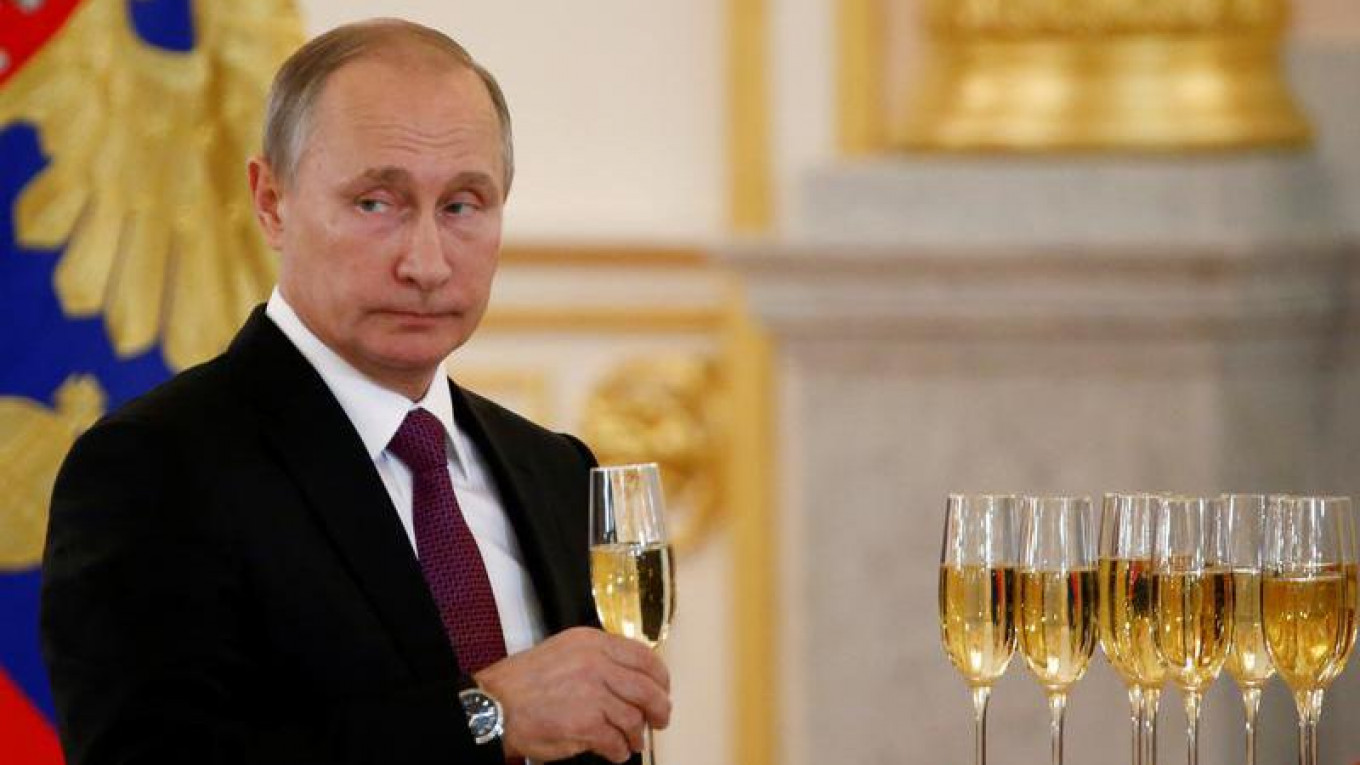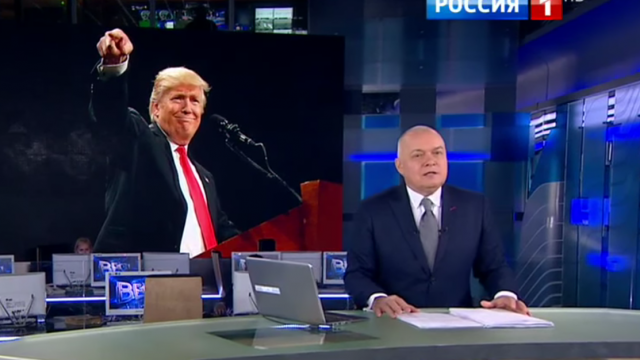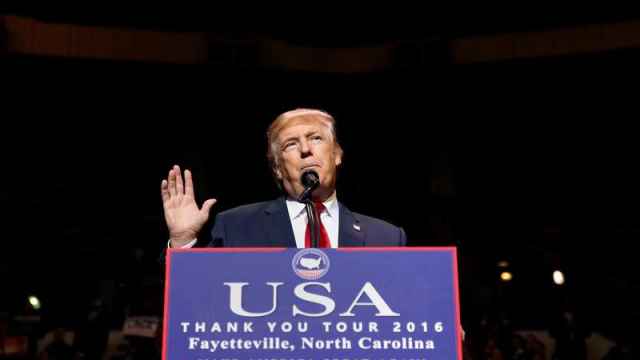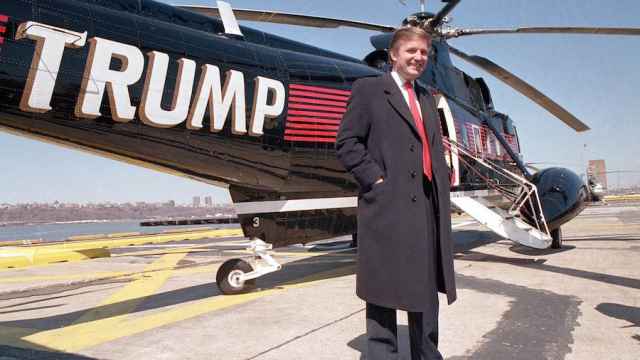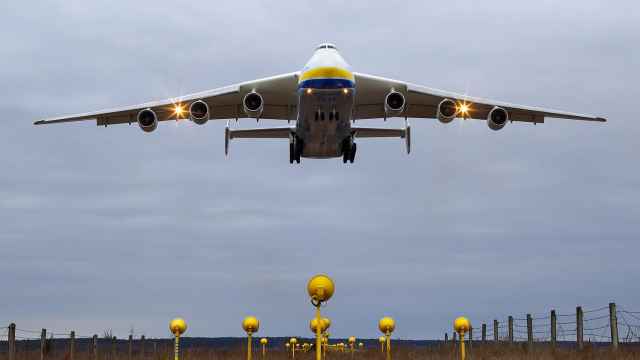The
year 2016 felt like the third year since 2014 rather than, say, the 25th since
the collapse of the Soviet Union. When peering into Russia’s future from a Russian
vantage point, one has to mark
the year 2014 as a major
threshold. It changed
international politics and Russian society. It was the year of the first
unthinkable internationally significant event, the annexation of Crimea, of which we have seen
more since then.
During the past three years Russia proved a robust player that defied early predictions of failure or even a major collapse. The difference, and the irony, of 2016 is that it is the first of the past three tumultuous years when Russia was not the only source of alarming news. In fact, the Kremlin’s bets performed reasonably well in 2016, while the West’s game was poor and fraught with unpleasant surprises.
It all began in February 2014, when the pro-Russian president of Ukraine Viktor Yanukovich, after months of violently suppressing street protests by citizens opposed to the administration, fled the country. In an unexpected counter-strike to what Moscow declared a Western-orchestrated «color revolution," Russia reacted by annexing Crimea and fatally destabilizing eastern Ukraine. A major confrontation between Russia and the West ensued. A new Cold War was the talk of the international press, and Russia, having lost the first one, did not look like a favorite to win the second.
Russia, a country that prior to 2014 was (mistakenly perhaps) seen in the West as one of the guarantors of the post-Cold War security architecture, broke out of it. Moscow undermined the system it was supposed to help protect. The United States reacted by imposing sanctions on the individuals involved in the annexation of Crimea and initiated a number of other restricting measures. The European Union and some other countries, including Canada, Japan, and Australia, joined in introducing travel bans and sectoral sanctions.
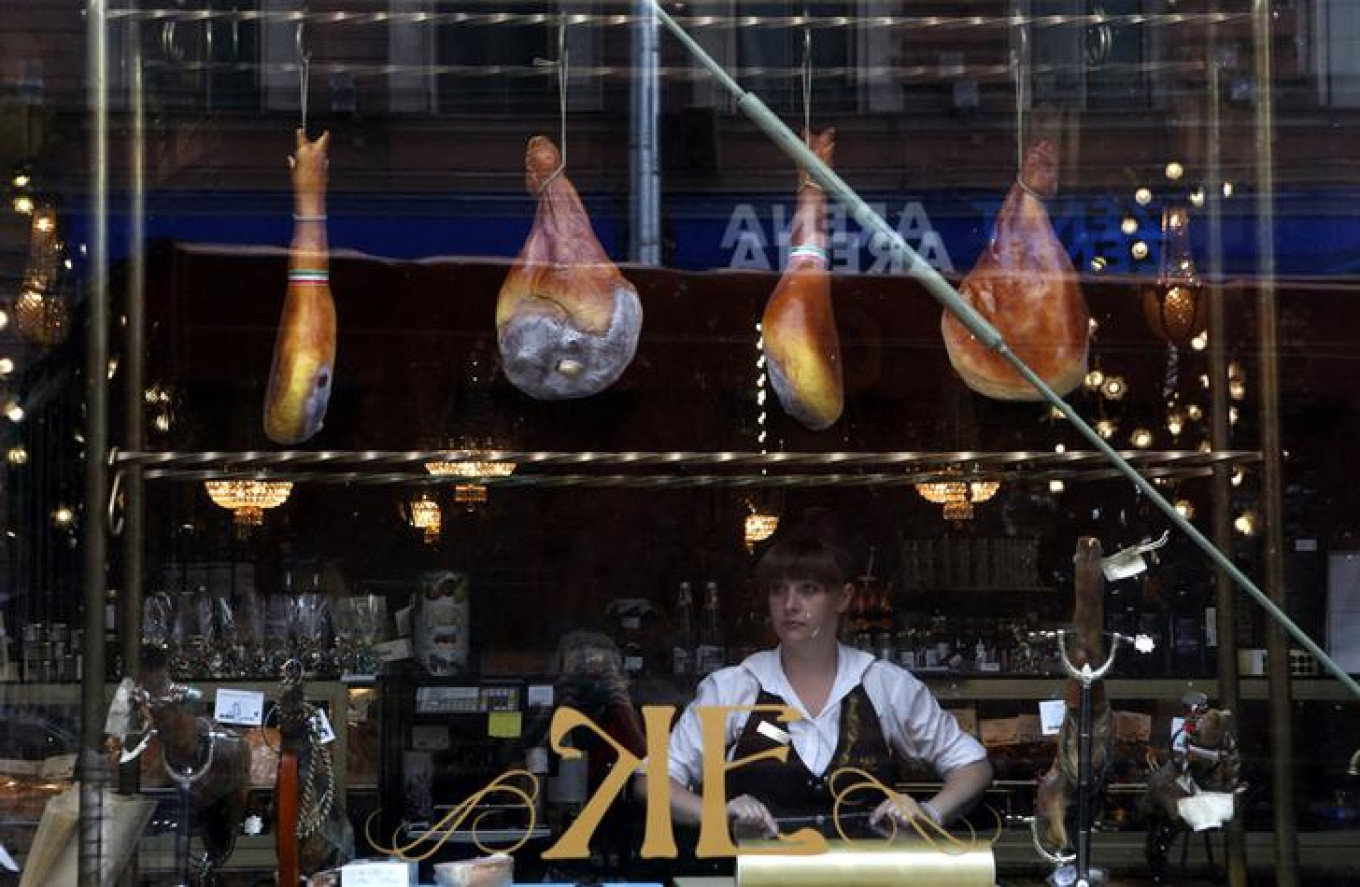
Russia had to suspend a number of oil exploration projects in which it had partnered with U.S. companies, including multibillion-dollar projects with Exxon Mobil. Russian companies lost almost all possibilities for borrowing in the West. Counter-sanctions announced by Putin depleted the supermarket shelves of French cheeses, Polish apples, and many other European products.
After thousands were left dead and millions displaced in the war in Ukraine, after the Malaysia Airlines flight MH17 was brought down by Russia-supported rebels using a Russian-made BUK missile, the larger part of the world seemed to turn against Russia. President Putin was openly snubbed at the G20 meeting in late 2014. Subsequent investigations led by the Dutch Safety Board left little doubt that a Russian missile launcher was involved in the shooting. Russia disputes the findings.
The sanctions and counter-sanctions coincided with a crippling plunge in oil prices that hit Russia and its oil-dependent currency hard. In fact, the oil slump proved a much worse ordeal than the Western sanctions. For some periods of time in the second half of 2014 the ruble was the world’s worst performing currency. By the end of 2014 prices for all imported goods - and Russia had a lot of imported goods - had gone through the roof. Other prices went up as well and have been increasing ever since. When shopping for groceries in today’s Moscow, one has to part with exactly twice as many rubles as one did before Crimea.
Russia is a poorer place three years after it ventured into conflict with the West. Russia’s GDP reached a peak of $2.2 trillion in 2013 and has since declined to $1.3 trillion, while the per capita GDP is down from its high of $15,000 to $16,000 to its 2007 level of $9,000. But most Russians seem to be impervious to economic trouble.
The Russian regime is strong, probably more than ever. The year 2016 looked decidedly more promising for Russia and its rulers than 2014. Domestically, no serious challenge arose to the current social and political order. Internationally, Russia is no longer the kind of pariah it was in 2014 and 2015.
Putin managed to break out of isolation. He went into Syria, supported a dictator who had very few friends, quarreled and made peace with Turkey. Russia and Turkey, despite major differences between them, are now the only international players left in Syria.
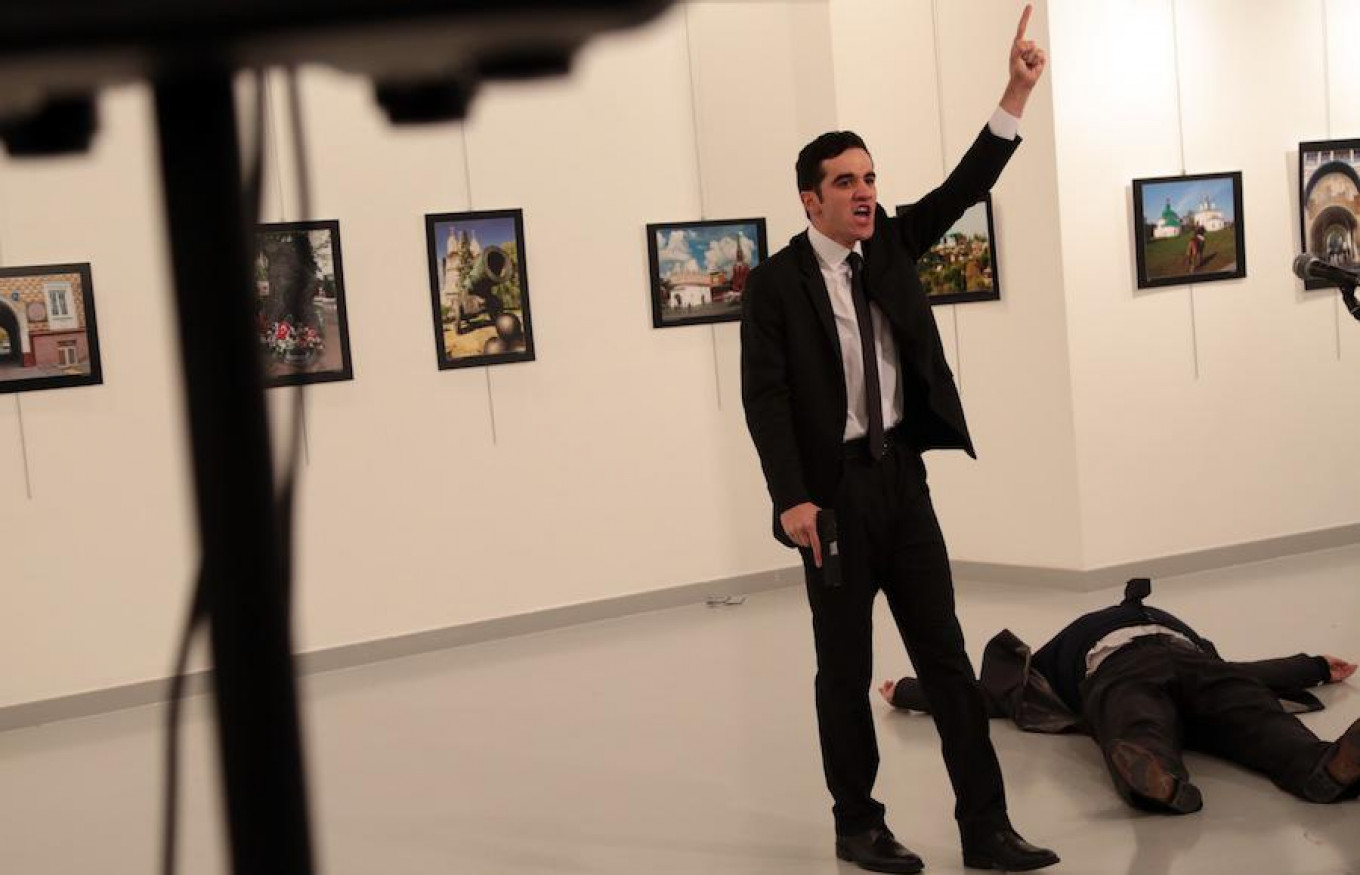
In a rare act of terror directed at a high-ranking Russian official, Russia’s ambassador to Turkey was shot dead on Monday in Ankara by a radicalized former guard. "It may have been an attempt to drive a wedge between Russia and Turkey," Putin’s spokesman said. "But our two countries will only cooperate closer and more effectively against those who carried out this provocation."
Putin has just concluded the first round of groundbreaking negotiations with Japan’s Prime Minister Shinzo Abe, a move that, with time, may result in a peace treaty between the two countries. Russia and Japan never signed a peace treaty after World War II because of a territorial dispute. Last week Putin and Abe agreed to start talks on joint economic activities on the four islands, the subject of the territorial row, a collection of rocks forming the southeastern edge of the Sea of Okhotsk.
We will see more political disputes over the matter of what exactly Putin did to get Trump elected. U.S. security experts including, officially, the CIA, publicly argue that there has been a Russian connection in the hacking of the DNC servers and John Podesta’s individual email account. But the president-elect dismisses the allegations. "These are the same people that said Saddam Hussein had weapons of mass destruction," the Trump transition team said in a statement. Regardless of whether Russia really was aiming at supporting one candidate over another, the resulting mistrust and infighting in the United States are in Moscow’s interest.
The processes that led to the Trump win have been under way for years. Some strong political currents have found their loud exponent in Donald Trump, but it is impossible to believe that Russia, or anyone else for that matter, could have influenced an entire nation’s preferences. Russia has a fragile economy, an ageing population, and a president who has been absent from the sad domestic situation, engrossed in international politics. His bets have played well, but he has not even started to deal with his own country’s troubles.
All the sanctions imposed on Russia during 2014 and 2015 are still in place. After the brutal military campaigns in Ukraine and Syria, Russia is feared rather than respected. The two major events that have benefited Russia happened outside Russia, namely, the UK’s decision to leave the European Union and the triumph of President-elect Trump in the United States. These two events do not affect Russia directly but, from the Russian standpoint, they do mark a favorable change in dominant winds. After all, it is Boris Johnson, not Putin, who is saying that the EU is a problem; it is Trump, not Putin, who is saying that NATO is obsolete.
It is they who help Putin win, not the other way around.
A Message from The Moscow Times:
Dear readers,
We are facing unprecedented challenges. Russia's Prosecutor General's Office has designated The Moscow Times as an "undesirable" organization, criminalizing our work and putting our staff at risk of prosecution. This follows our earlier unjust labeling as a "foreign agent."
These actions are direct attempts to silence independent journalism in Russia. The authorities claim our work "discredits the decisions of the Russian leadership." We see things differently: we strive to provide accurate, unbiased reporting on Russia.
We, the journalists of The Moscow Times, refuse to be silenced. But to continue our work, we need your help.
Your support, no matter how small, makes a world of difference. If you can, please support us monthly starting from just $2. It's quick to set up, and every contribution makes a significant impact.
By supporting The Moscow Times, you're defending open, independent journalism in the face of repression. Thank you for standing with us.
Remind me later.



